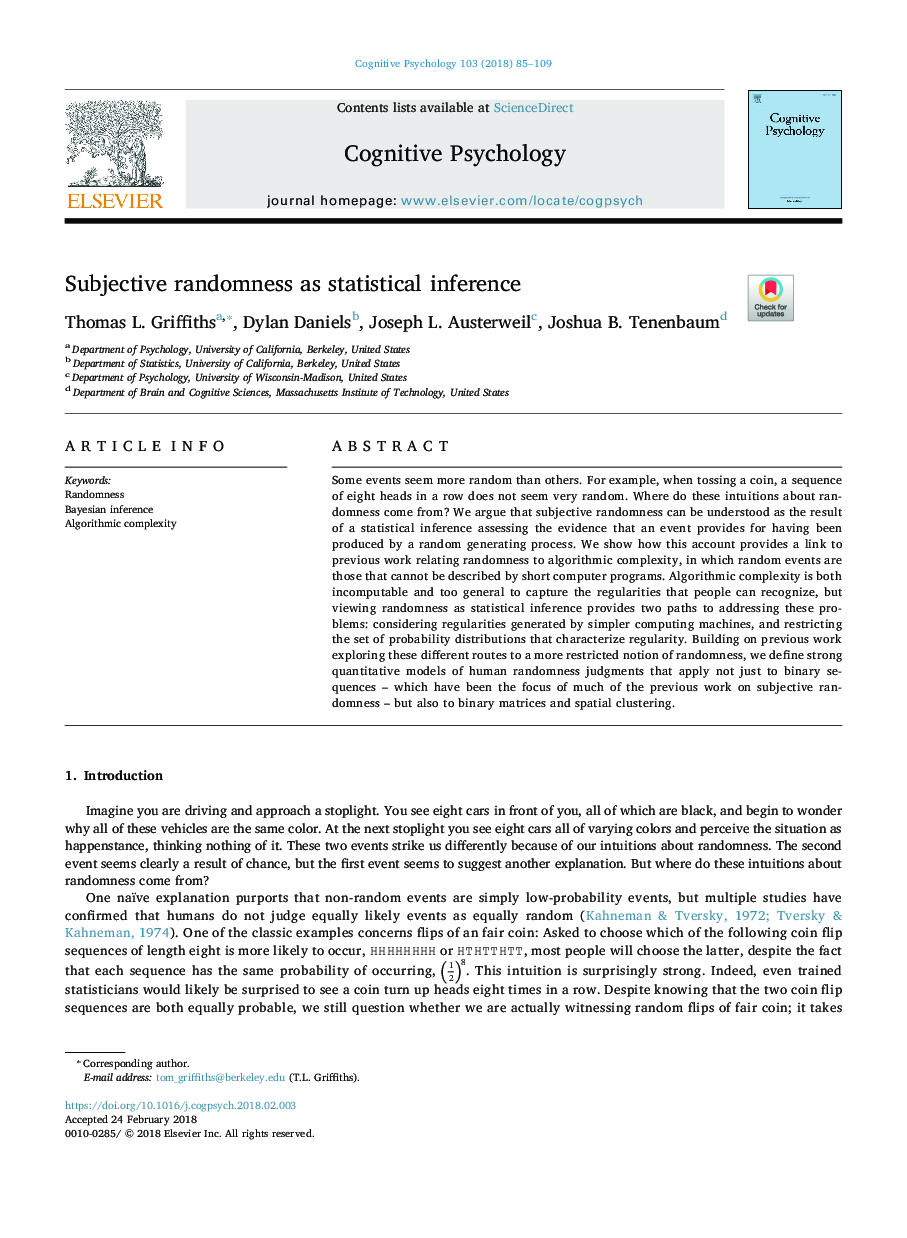| Article ID | Journal | Published Year | Pages | File Type |
|---|---|---|---|---|
| 7272618 | Cognitive Psychology | 2018 | 25 Pages |
Abstract
Some events seem more random than others. For example, when tossing a coin, a sequence of eight heads in a row does not seem very random. Where do these intuitions about randomness come from? We argue that subjective randomness can be understood as the result of a statistical inference assessing the evidence that an event provides for having been produced by a random generating process. We show how this account provides a link to previous work relating randomness to algorithmic complexity, in which random events are those that cannot be described by short computer programs. Algorithmic complexity is both incomputable and too general to capture the regularities that people can recognize, but viewing randomness as statistical inference provides two paths to addressing these problems: considering regularities generated by simpler computing machines, and restricting the set of probability distributions that characterize regularity. Building on previous work exploring these different routes to a more restricted notion of randomness, we define strong quantitative models of human randomness judgments that apply not just to binary sequences - which have been the focus of much of the previous work on subjective randomness - but also to binary matrices and spatial clustering.
Related Topics
Life Sciences
Neuroscience
Cognitive Neuroscience
Authors
Thomas L. Griffiths, Dylan Daniels, Joseph L. Austerweil, Joshua B. Tenenbaum,
